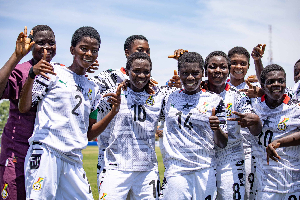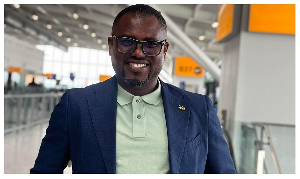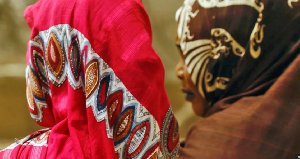What explains the flood of wild statements and actions of our government and public officials in recent times? Maybe our President and his ruling party, the New Patriotic Party (NPP), who won a handsome victory a year ago, are seeking to put in place measures to realise their electoral promises.
However, the current tidal wave of strange and structural changes being hinted at in the wild statements bandied about must be a cause for concern to all citizens. They, in reality, threaten our constitutional order, our political peace and the continued existence of our nation state Ghana.
I intentionally prefaced this excursion into our past for relevant lessons with a quotation from FDR, who was elected four unprecedented times as the American President, and died three months after being sworn in for his fourth term in 1945, with his Vice-President, Harry Truman, taking over as President.
Indeed, it was because of his longevity in office that the 22nd amendment to the American Constitution was passed after his death, to restrict presidential terms to a maximum of two terms totalling eight years.
President Roosevelt roundly defeated President Herbert Hoover in the 1932 elections, but Hoover himself died in 1964. As all the politicians of the New Deal Era of Roosevelt died one after the other, he just said: “I outlived all those bastards.” My readers will grasp the relevance of these asides as I tell my story for today.
Two years before our first military incursion into our politics in February 1966, President Nkrumah and the ruling Convention People’s Party (CPP) seemed impregnable in position and undefeatable in elections. Three things had happened of moment in 1964 to snuff out any hope of a change in the political leadership and direction of Ghana if you dissented.
There was the successful second trial of the suspects in the Kulungungu attempted assassination of President Nkrumah. Never mind that the leading culprits were all CPP gurus.
The government then announced its intention to hold a referendum to turn this country into a one-party state, with the CPP as the ‘’core’’ of all organisations. The opposition United Party (UP) was banned, as a matter of course, and the CPP recognised as the sole legal political party.
The successful referendum was crystallised in an act of Parliament, thus directly implying that whoever the ruling CPP presented as its presidential candidate would be duly elected as President. This had earlier been made routine in an amendment to the party’s constitution which made President Nkrumah the perpetual presidential candidate of the CPP.
This is the root of the accusation that President Nkrumah made himself a life President.
If you believed in multiparty democracy, human rights, free and fair elections, these things happening in 1964 in Ghana alone put paid to your desire to be treated as a serious citizen with differing views in your own country.
The opposition to all these strange, comprehensive changes to the constitutional order was conducting business ineffectually from outside the country, as political exiles. Professor K.A.Busia and the most interesting and significant senior member of the CPP who had fled the country earlier in 1961, Komla Gbedemah, were both in exile.
Worse things were to happen in the following year of 1965. Let me sketch them, but not sequentially. Dr Danquah died in political detention in February, without a charge, trial, conviction or sentencing.
The third summit meeting of the nascent Organisation of African Unity (OAU), now renamed the African Union (AU), was due to take place in Accra in May, but due to the perverse interest of both the Western and Eastern Blocs, it was postponed several times, and took place in October rather, in addition to the fact that this delay helped in the completion of the magnificent edifice that President Nkrumah had hurriedly constructed to host the gathering of independent African leaders, popularly known as Job 600, now accommodating our Parliament and its offices.
The most significant occurrence at the Accra summit was the fact that an ideological ally of President Nkrumah descended heavily on him, reducing our Osagyefo to tears for insisting that his [Nkrumah’s] brand of organic African unity to be forged on the spot was the only way to achieve the aims of the OAU.
That was President Julius Nyerere of Tanzania. Nkrumah had merely transferred the demonisation of his domestic opponents to his African colleagues who had different views, with disruptive results. Is it not ironic that decades later, in the time of the Provisional National Defence Council (PNDC) of then Chairman Rawlings, it was President Nyerere whose criticism of the resting place of Nkrumah at Nkroful during a visit resulted in the construction of the fitting Nkrumah Mausoleum in Accra?
In my opinion, the worst possible occurrence in 1965 was the Unilateral Declaration of Independence (UDI) by Ian Smith of the forcible independence of Zimbabwe, then known as Rhodesia, from the colonial power, Britain, and the reaction of Nkrumah.
President Nkrumah demanded that Britain use force to reverse this illegality, and when she refused, Ghana broke diplomatic relations with Britain. Britain was our largest trading partner, our former colonial master and the leading compass-point of Ghanaians at the time.
What exactly was the political wisdom in this act of petulance? In the event, the coup makers who overthrew President Nkrumah used military training exercises for invading Rhodesia to reverse UDI to camouflage their intentions.
But the icing on the cake of the plethora of acts of constitutional recklessness, backed by the 1960 republican mandate, also happened in 1965. The tenure of the President of the First Republic and Parliament was extended by an Act of Parliament, and not by a general election! Parliament went ahead and approved the list issued by the central committee of the ruling CPP of selected CPP members of Parliament (MPs) whose tenure began in that year after the expiry of the first tenure which began in 1960, without an election! Ghanaian wags, bemused by this brazenness, dubbed it the ‘’general selection,’’ instead of a general election. As far as Ghanaian democracy was concerned, the entire government had become an unconstitutional imposition.
In 1966, the Volta Dam at Akosombo was opened, and the first Nigerian coup happened on January 15, led by Major Chukwuma Nzeogwu. A day after the Nigerian coup, its Deputy Leader, Major Ifeajuna, arrived at the Kotoka Airport and was met by Dr S.G. Ikoku of the Winneba Ideological Institute and other leading political exiles from Nigeria.
A ram was slaughtered at the airport in thanksgiving for the coup, and on February 1, President Nkrumah addressed Parliament, condemning the Nigerian soldiers but adding rather cruelly, that the slain Prime Minister Balewa was a victim of ‘circumstances he could not understand.’
Exactly 23 days later, on Thursday, February 24, the CPP and Osagyefo President Nkrumah, clearly the best known and most influential African politician, were overthrown in our first military coup.
Even the presidential title, Osagyefo, was appropriated from the Abuakwahene he had destooled earlier, Osagyefo Ofori-Atta II. Two then popular highlife songs, not from official military sources, characterised that coup. ‘’Ponko abodam a, ne wura ne dze, onnbo dam bi,’’ to wit, the horse may be mad, but not its owner, and “Nsu beto a, mframa di kan’,’ meaning a windstorm prefaces rainfall.
All attempts to revive President Nkrumah’s party, the CPP, since then, and relive the glorious days of President Nkrumah have failed, and will fail.
Principally because he and his colleagues believed that victory and the momentary approval of the masses must be used to do anything and ride roughshod over Ghanaians. Anything was simply the complete ‘’cipipification’’ of the entire political and social space of Ghanaians and Ghana.
Opinions of Friday, 15 December 2017
Columnist: Colin Essamuah



![Miracles Aboagye [L] and John Mahama Miracles Aboagye [L] and John Mahama](https://cdn.ghanaweb.com/imagelib/pics/700/70061516.295.jpg)











